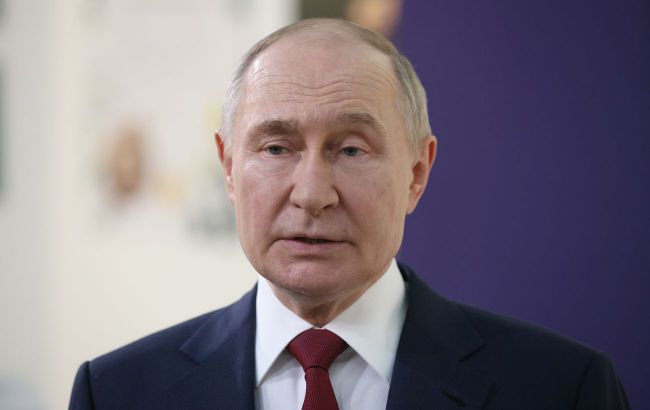ISW reveals why Russia keeps dragging out peace talks with Ukraine
 Photo: Vladimir Putin (Getty Images)
Photo: Vladimir Putin (Getty Images)
The Kremlin continues to dictate the terms and timing of peace negotiations with Ukraine. In doing so, ISW analysts believe, Moscow seeks to blame Kyiv for delaying the talks.
"Russian officials continue to dictate the terms and timing of peace negotiations with Ukraine and are attempting to obfuscate the current state of negotiations. Russian officials are setting conditions to falsely accuse Ukraine of delaying negotiations," the report says.
At the same time, analysts believe that Russia is pressuring Ukraine to make concessions regarding the timing, conditions, and location of the negotiations. They recall that Kremlin leader Vladimir Putin initially proposed, on the night of May 10–11, to allegedly resume the bilateral peace talks held in Istanbul in 2022, but later rejected Ukrainian President Volodymyr Zelenskyy's invitation for a personal face-to-face meeting in Istanbul.
"Ukraine's willingness to attend the May 15 to 16 talks in Istanbul with Russian officials was itself a significant concession, as holding the talks in Istanbul fit into Putin's narrative that the current talks are a resumption of the 2022 Istanbul Protocols in which Russia demanded that Ukraine effectively capitulate to Russia," ISW notes.
Analysts believe that Russian forces will continue their offensive along the front line until either Ukraine accepts Russia’s terms or until they are no longer able to advance. Russian officials are likely to use any further battlefield gains to extract additional concessions from Ukraine and the West during negotiations.
"Russian forces are leveraging the fact that Ukraine and Russia set no concrete deadlines for the next steps in the peace process in order to delay the process altogether and prolong the war," the Institute states.
This same strategy, analysts believe, can also be seen in how Russian officials are withholding their memorandum and may continue to do so until the June 2 meeting.
"Russian officials may assess that Ukraine will refuse to attend the June 2 meeting if Russia does not provide its memorandum in advance as Ukraine has done and likely intend to seize on Ukraine's refusal to blame Ukraine for stalling peace negotiations," the report concludes.
Ukraine-Russia talks
On May 16, the first meeting in years between Ukrainian and Russian delegations took place in Türkiye. The sides discussed possible paths toward ending the war.
That same day, Ukrainian President Volodymyr Zelenskyy arrived in Türkiye, expressing readiness for personal talks with Vladimir Putin. However, Putin ignored this invitation and declined the meeting.
At that time, the Ukrainian and Russian delegations agreed to prepare written proposals regarding a potential ceasefire.
Recently, Russia proposed holding a second round of ceasefire talks with Ukraine on June 2 in Istanbul.
More on what Ukraine and Russia are bringing to the new round of talks in Istanbul and when Donald Trump might finally decide to impose sanctions against the aggressor country read in the RBC-Ukraine article.

